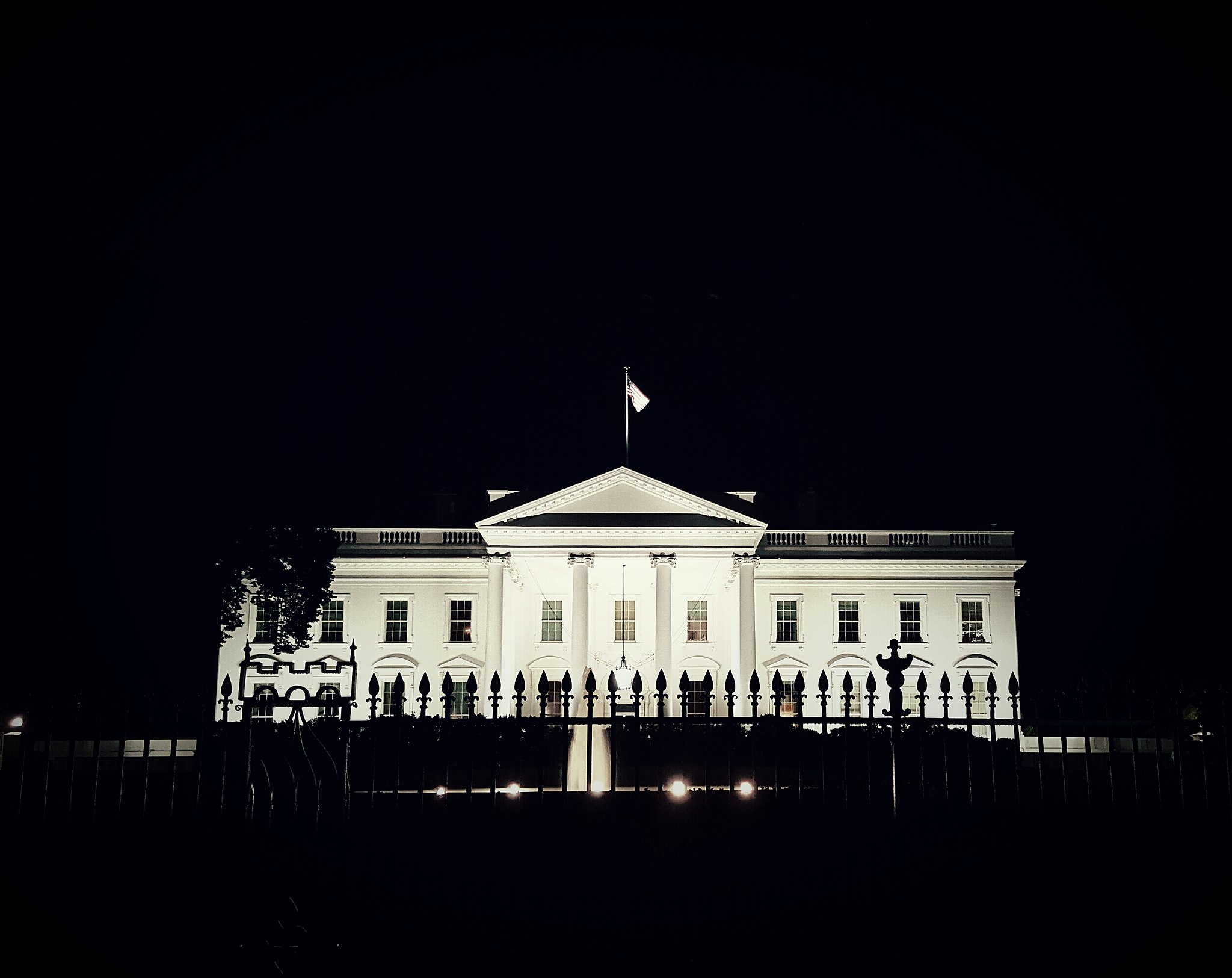National Security Highlights in the 2017 State of the Union
We watched the State of the Union so you don’t have to.
With an eye towards the national security sections of the speech, we’ve selected the parts we think are most relevant to Lawfare readers, organizing them by subject matter. The full text of the President's address, as delivered, is available here, courtesy of the White House.
***
On border security and immigration:
Published by The Lawfare Institute
in Cooperation With

We watched the State of the Union so you don’t have to.
With an eye towards the national security sections of the speech, we’ve selected the parts we think are most relevant to Lawfare readers, organizing them by subject matter. The full text of the President's address, as delivered, is available here, courtesy of the White House.
***
On border security and immigration:
Here are the four pillars of our plan: The first pillar of our framework generously offers a path to citizenship for 1.8 million illegal immigrants who were brought here by their parents at a young age. That covers almost three times more people than the previous administration covered. Under our plan, those who meet education and work requirements, and show good moral character, will be able to become full citizens of the United States over a 12-year period.
The second pillar fully secures the border. (Applause.) That means building a great wall on the southern border, and it means hiring more heroes, like CJ, to keep our communities safe. Crucially, our plan closes the terrible loopholes exploited by criminals and terrorists to enter our country, and it finally ends the horrible and dangerous practice of catch and release.
The third pillar ends the visa lottery, a program that randomly hands out green cards without any regard for skill, merit, or the safety of American people. It’s time to begin moving towards a merit-based immigration system, one that admits people who are skilled, who want to work, who will contribute to our society, and who will love and respect our country.
The fourth and final pillar protects the nuclear family by ending chain migration. Under the current broken system, a single immigrant can bring in virtually unlimited numbers of distant relatives. Under our plan, we focus on the immediate family by limiting sponsorships to spouses and minor children. This vital reform is necessary, not just for our economy, but for our security and for the future of America.
In recent weeks, two terrorist attacks in New York were made possible by the visa lottery and chain migration. In the age of terrorism, these programs present risks we can just no longer afford.
On China, Russia, and national security challenges:
Around the world, we face rogue regimes, terrorist groups, and rivals like China and Russia that challenge our interests, our economy, and our values. In confronting these horrible dangers, we know that weakness is the surest path to conflict, and unmatched power is the surest means to our true and great defense.
For this reason, I am asking the Congress to end the dangerous defense sequester and fully fund our great military.
On modernizing the nuclear arsenal:
As part of our defense, we must modernize and rebuild our nuclear arsenal, hopefully never having to use it, but making it so strong and powerful that it will deter any acts of aggression.
Perhaps someday in the future there will be a magical moment when the countries of the world will get together to eliminate their nuclear weapons. Unfortunately, we are not there yet.
On the fight against the Islamic State:
Last year, I also pledged that we would work with our allies to extinguish ISIS from the face of the Earth. One year later, I am proud to report that the coalition to defeat ISIS has liberated almost 100 percent of the territory once held by these killers in Iraq and Syria. But there is much more work to be done. We will continue our fight until ISIS is defeated.
On the detention and treatment of captured terrorists:
Terrorists who do things like place bombs in civilian hospitals are evil. When possible, we annihilate them. When necessary, we must be able to detain and question them. But we must be clear: Terrorists are not merely criminals. They are unlawful enemy combatants. And when captured overseas, they should be treated like the terrorists they are.
In the past, we have foolishly released hundreds of dangerous terrorists, only to meet them again on the battlefield – including the ISIS leader, al-Baghdadi.
So today, I am keeping another promise. I just signed an order directing Secretary Mattis to reexamine our military detention policy and to keep open the detention facilities at Guantánamo Bay.
I am also asking the Congress to ensure that, in the fight against ISIS and Al Qaeda, we continue to have all necessary power to detain terrorists – wherever we chase them down.
On the conduct of the war in Afghanistan:
Our warriors in Afghanistan also have new rules of engagement. Along with their heroic Afghan partners, our military is no longer undermined by artificial timelines, and we no longer tell our enemies our plans.
On the recognition of Jerusalem as the capital of Israel and allocation of foreign aid:
Last month, I also took an action endorsed unanimously by the Senate just months before. I recognized Jerusalem as the capital of Israel.
Shortly afterwards, dozens of countries voted in the United Nations General Assembly against America’s sovereign right to make this recognition.
That is why, tonight, I am asking Congress to pass legislation to help ensure American foreign-assistance dollars always serve American interests, and only go to friends of America, not enemies of America.
On Iran:
When the people of Iran rose up against the crimes of their corrupt dictatorship, I did not stay silent. America stands with the people of Iran in their courageous struggle for freedom.
I am asking the Congress to address the fundamental flaws in the terrible Iran nuclear deal.
On Cuba and Venezuela:
My Administration has also imposed tough sanctions on the communist and socialist dictatorships in Cuba and Venezuela.
On North Korea:
But no regime has oppressed its own citizens more totally or brutally than the cruel dictatorship in North Korea. North Korea’s reckless pursuit of nuclear missiles could very soon threaten our homeland. We are waging a campaign of maximum pressure to prevent that from happening.
Past experience has taught us that complacency and concessions only invite aggression and provocation. I will not repeat the mistakes of past administrations that got us into this very dangerous position.
We need only look at the depraved character of the North Korean regime to understand the nature of the nuclear threat it could pose to America and our allies.






